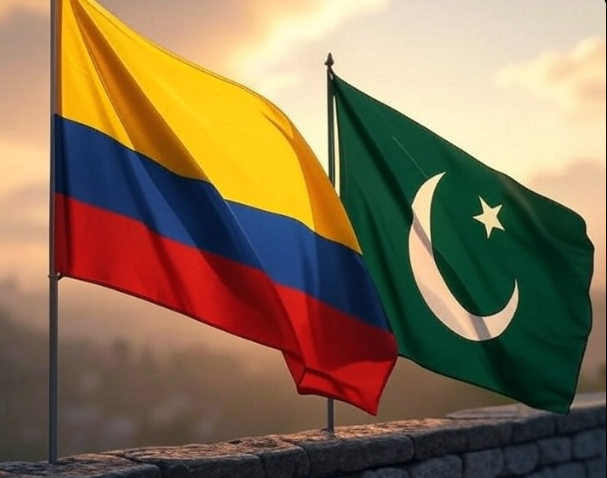Colombia Withdraws Statement On Pakistan: In a significant step within India’s ongoing global diplomatic campaign against terrorism, Colombia has officially withdrawn a condolence message originally issued in favor of Pakistan. This decision came after an Indian parliamentary delegation, led by Congress Member of Parliament Shashi Tharoor, conveyed strong disappointment over the gesture, especially in light of Pakistan’s long-standing role in sponsoring cross-border terrorism.
Colombia Withdraws Statement On Pakistan
Colombia has officially withdrawn a condolence message originally issued in favor of Pakistan. This decision came after an Indian parliamentary delegation, led by Congress Member of Parliament Shashi Tharoor, conveyed strong disappointment over the gesture, especially in light of Pakistan’s long-standing role in sponsoring cross-border terrorism.
Colombia officially withdraws its earlier statement that it issued expressing condolences on the loss of lives in Pakistan after the Indian strikes; earlier, Shashi Tharoor, who is leading the all-party delegation, raised concern and said – we (India) were a little disappointed in the reaction of the Colombian government. After meeting India’s all-party delegation, Colombia’s Vice Foreign Minister, Ms Rosa Yolanda Villavicencio, says, “…We are very confident that with the explanation that we received today and the detailed information that we now have regarding the real situation, the conflict, and what happened in Kashmir, we can also continue the dialogue…”
Tharoor, during the visit, firmly reiterated that India stands for strength, not fear, in the face of terror. He invoked Mahatma Gandhi not only as an icon of peace and nonviolence but as a freedom fighter who taught the nation to resist oppression. “We must preserve our freedom without fear—without fear of the terrorists who have inflicted so much harm upon our country,” he said.
This diplomatic move was part of India’s broader global outreach program to expose Pakistan’s role in cross-border terrorism and build international consensus for strong and coordinated action against state-sponsored terror. All-party delegations have been sent to different continents with a unified message of zero tolerance towards terrorism.
In Europe, BJP senior leader Ravi Shankar Prasad led the delegation and condemned Pakistan for its double-dealing. He highlighted the grave conditions in Pakistan-occupied Kashmir (PoK), stating that people there are suffering immensely and are crying out to join India. He also brought global attention to the human rights abuses in Baluchistan, particularly against women, calling it the “worst barbaric treatment possible.”
Former Union Minister M.J. Akbar, part of the same delegation, described the Shahbaz Sharif government as having “a double face and a poisoned tongue.” In response to calls for dialogue with Pakistan, Akbar questioned, “Which face do we talk to? Which tongue do we address?” He stressed that engaging with a state that operates through duplicity and terror is meaningless.
The Indian delegation was also briefed in Copenhagen by Ambassador Manish Prabhad on the India-Denmark Green Strategic Partnership. The discussions emphasized shared democratic values and mutual concerns about terrorism, reinforcing the strategic aspect of India’s outreach.
Meanwhile, in Ethiopia, another Indian delegation met with former Prime Minister Hailemariam Desalegn to discuss the recent terrorist attack in Behalgam. The delegation emphasized that such attacks are not just assaults on India but on the values the global community holds dear. The call for zero tolerance towards terrorism was made loud and clear.
Former Danish Ambassador to India Freddy Svane, speaking on the broader impact of India’s initiative, said this diplomatic engagement is the “strongest expression of India’s will” to eliminate terror networks. He noted that terror is not spontaneous—it is funded, planned, and supported through complex networks. He urged the global community to support India not just with words but with concrete actions, including calling out Pakistan for its decades-long support of terror operations.
Disclaimer:
The views and statements mentioned in this article are based on publicly available information, official delegations’ briefings, and diplomatic interactions as reported. This article does not intend to defame or target any country, government, or individual but seeks to present India’s official stance and developments in international diplomacy related to terrorism. Readers are encouraged to consider multiple sources and perspectives for a well-rounded understanding of the subject.

